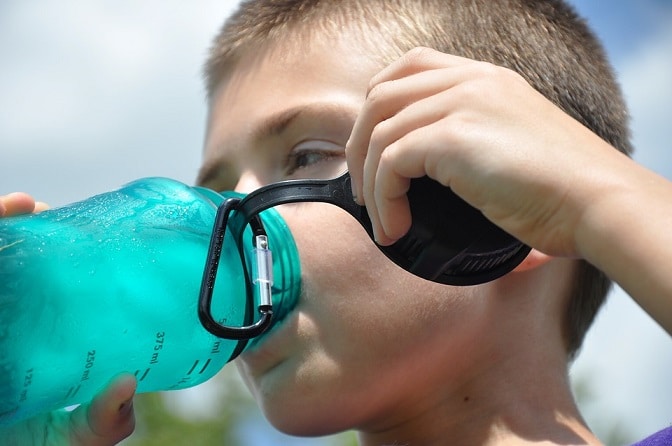Hydration is vital for children as they have higher water requirements in relation to their body weight than adults and are often physically active, which means that they need to drink water more often.
Children do not always recognise the early stages of thirst, and this can make them especially vulnerable to becoming dehydrated. For this reason, it is important that children are informed about water; its value, its importance for the body and good health, why they need to drink water every day, and the importance of not wasting water.
Mild dehydration can result in thirst, headaches, dry skin, tiredness, lack of concentration and diminished cognition and reduced mental performance.
The amount of water that a child needs to drink daily varies greatly according to age, gender, the weather and their physical activity. The British Nutrition Foundation set out guidelines in which it advises that children should drink plenty of water every day because it hydrates without calories or risking harm to teeth.
Children between the ages of 4-13 should drink around 6-8 glasses of fluid per day in addition to the fluid included in the food in their diet. Younger children need less and should drink smaller amounts at a time – around 150ml per serving.
The European Food Safety Authority (EFSA) has developed the below set of fluid requirements for children of different ages.
- Children need to drink water daily in addition to the water included in the food in their diet;
- Boys and girls between 4 – 8 years old must drink 1.6 litres of water per day
- Boys aged 9 -13 need to drink 2.1 litres of water daily; and
- Girls of 9 -13 should drink 1.9 litres of water daily
One easy method of ensuring your children drink sufficient water is to invest in a water cooler that dispenses filtered, chilled drinking water virtually 24/7. They love that the water is so accessible and have fun acting barman for their friends.






